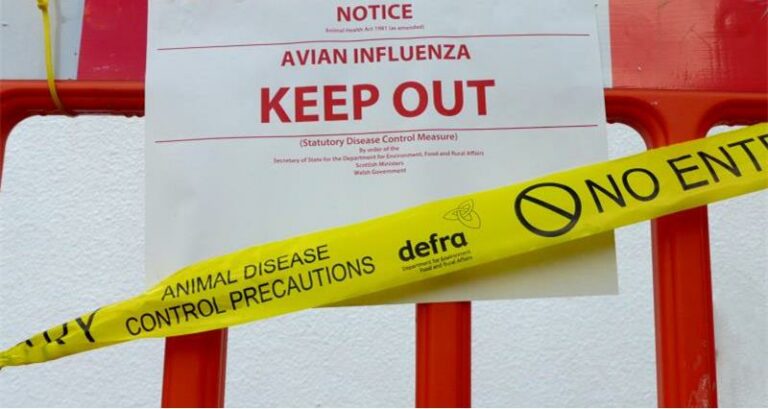Low pathogenic avian flu of the H5 strain has been confirmed at a commercial poultry unit in mid Suffolk, on Tuesday 10 December.
According to the British Veterinary Association, the disease was picked up by a private veterinary surgeon who was investigating a drop in egg production in the flock, demonstrating the vital importance of disease surveillance and prompt reporting.
The farm is a broiler breeder unit owned by PD Hook supplying fertile hatching eggs to other sites within the business. Director Patrick Hook told Poultry News the farm had noticed a drop in eggs last week and had called in vets to investigate. The flock, which is 46 weeks old, will now be culled. Although there will be a financial cost to the early cull, Hook said he was grateful it wasn’t any worse.
Hook said: “Low Pathogenic Avian Flu (LPAI) has been confirmed on one of our broiler breeder farms in Suffolk that is 46 weeks old.
“We are working closely with APHA and DEFRA and the birds will be culled within the next 24 hours
“We take biosecurity, disease outbreaks and welfare extremely seriously and our teams are experienced and trained to deal with these situations.”
All the birds across six sheds will now be humanely culled on Thursday 12 December and Defra put in place a 1km restriction zone around the infected farm to limit the risk of the disease spreading. There are no other commercial poultry units within the 1km zone.
The advice from Public Health England (PHE) is that the risk to public health from the virus is very low and the Food Standards Agency has made clear that bird flu does not pose a food safety risk for UK consumers. Thoroughly cooked poultry and poultry products, including eggs, are safe to eat.
Chief Veterinary Officer, Christine Middlemiss, said: “Low Pathogenic Avian flu has been confirmed on a commercial chicken farm in Suffolk. Immediate steps have been taken to limit the risk of the disease spreading and 27,000 poultry at the farm will be culled.
“Public Health England has confirmed that the risk to public health is very low and the Food Standards Agency has said that bird flu does not pose a food safety risk for UK consumers.
“Bird keepers should remain alert for any signs of disease, report suspected disease immediately and ensure they are maintaining good biosecurity on their premises.
“We are urgently looking for any evidence of disease spread associated with this strain to control and eliminate it.”
Dr Gavin Dabrera, Public Health Consultant, Public Health England, said: “Avian flu (often called bird flu) is primarily a disease of birds and the risk to the general public’s health is very low.
“As a precaution, we are offering public health advice and antivirals to those who had contact with the affected birds, as is standard practice.”
A detailed investigation is in progress to determine the most likely source of this outbreak.


